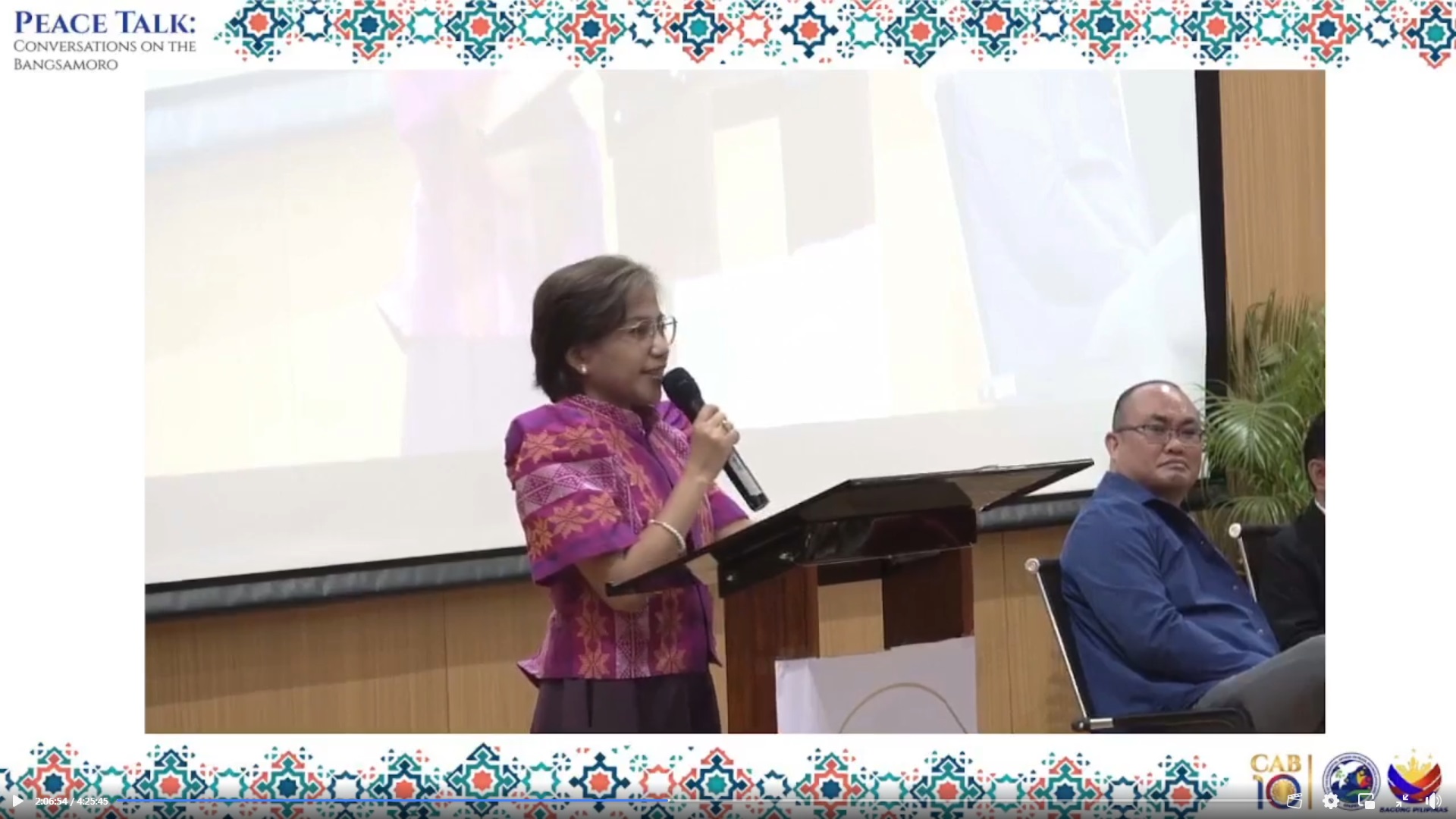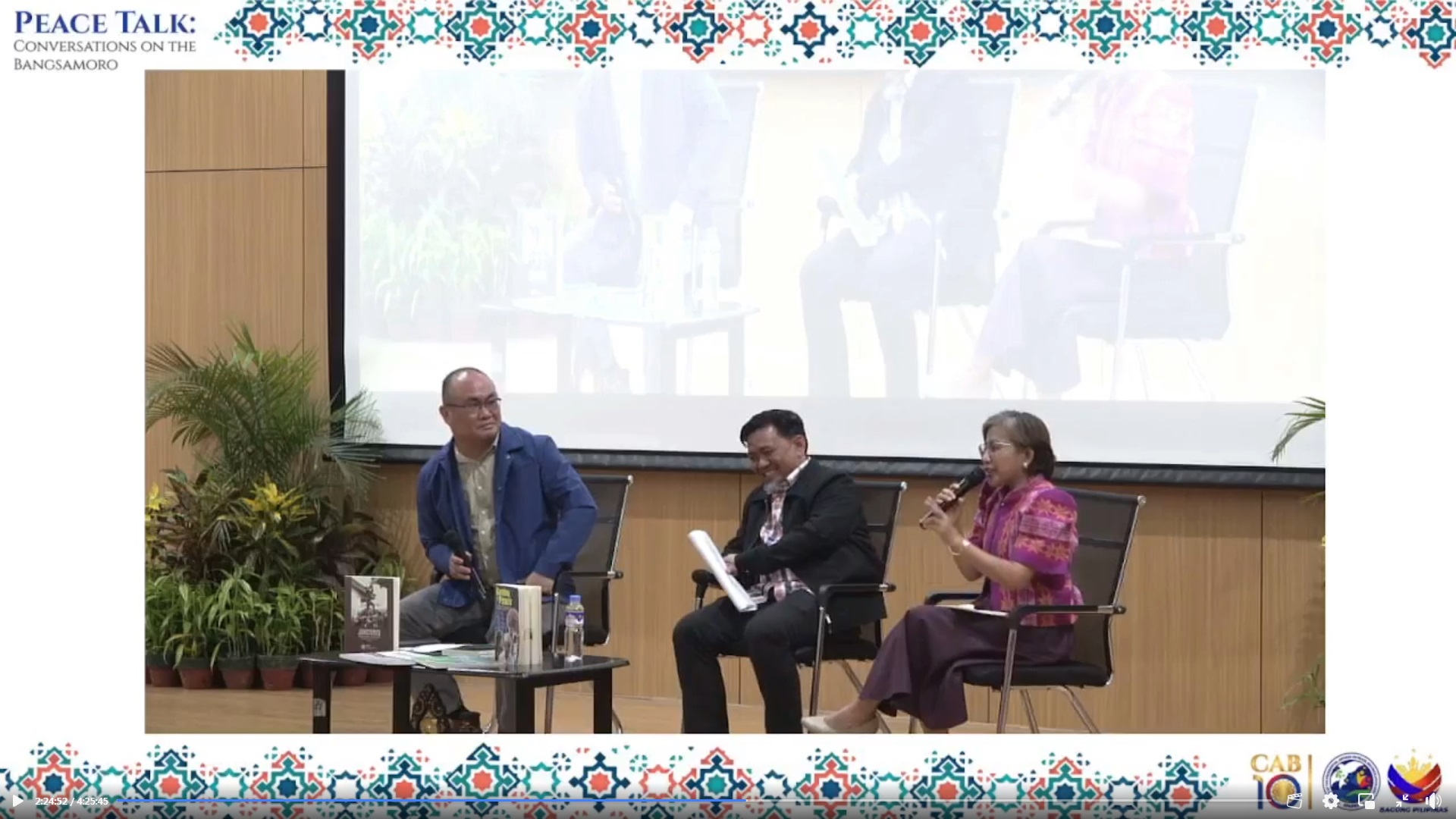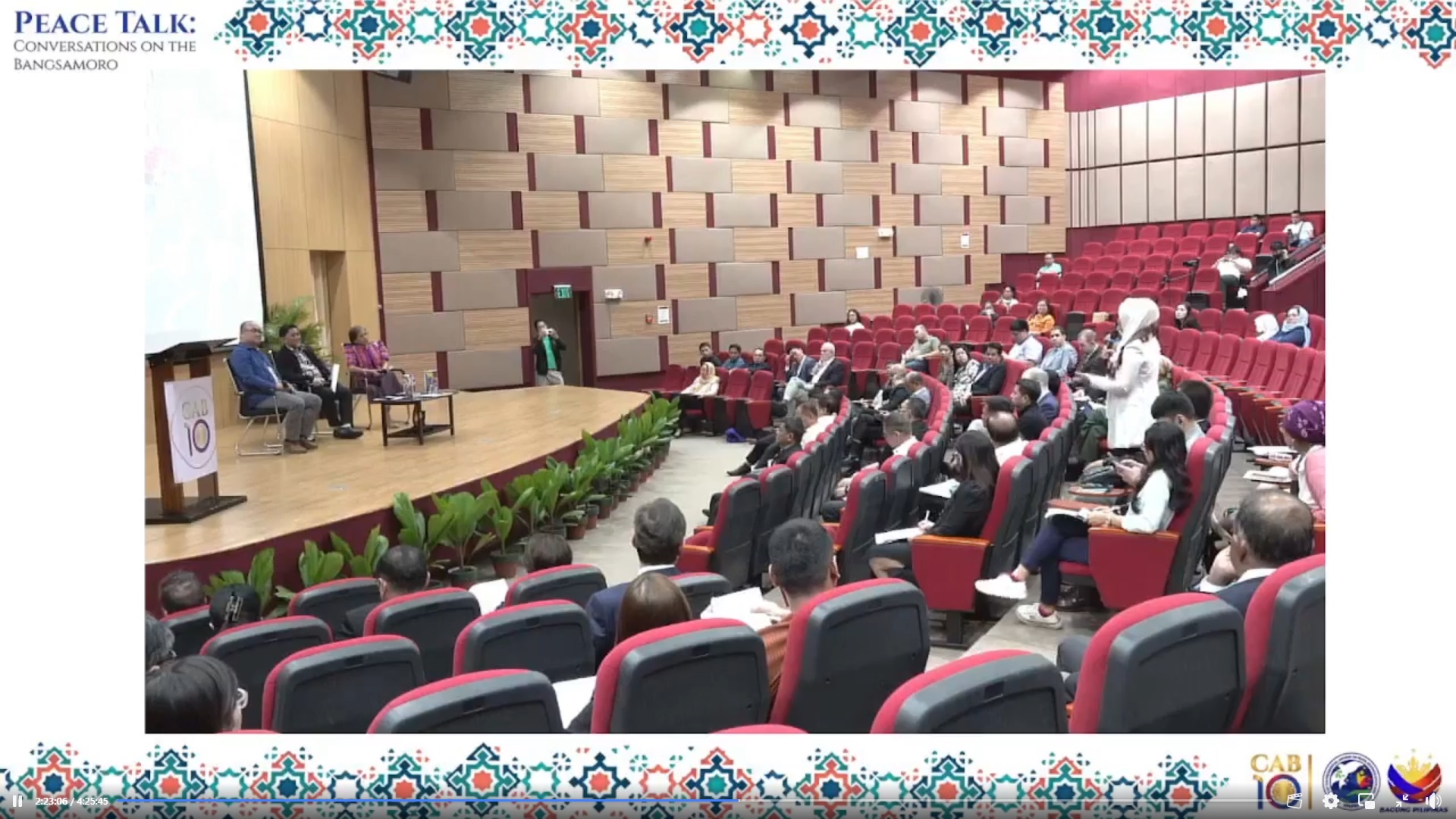UP ups involvement in BARMM
 |
| Professor and Chancellor and TWG Chair Lyre Anni Murao |
University of the Philippines Mindanao Professor Lyre Anni Murao disclosed the University of the Philippines' (UP) plan to create a UP Bangsamoro Development Institute (BDI) to contribute to inclusive and sustainable peace and development in the Bangsamoro Autonomous Region for Muslim Mindanao (BARMM).
Professor Murao announced this in remarks at the forum "Peace Talk: Conversations on the Bangsamoro," held at UP Diliman, Quezon City, on March 22, 2024, commemorating the 10th anniversary of the signing of the Comprehensive Agreement on the Bangsamoro.
Professor Murao represented UP as Chairperson of the Technical Working Group (TWG) for the Creation of UP BDI and as Chancellor of UP Mindanao in the forum organized by the Office of the Presidential Adviser on Peace, Reconciliation and Unity (OPAPRU).
"The UP Bangsamoro Development Institute's vision is for peace and development in the BARMM, harnessing its resources and full potential for inclusive growth. Our mission is to serve as enablers of collaboration with a safe partnering space, bridging the BARMM's peace stakeholders," she said.
She described the BDI as an open-to-collaboration unit. "The BDI is conceived as a partnership of UP and BARMM and other stakeholders and potential collaborators, such as state universities and colleges, higher education institutions, and other agencies, committed to bolstering education and socio-economic development in the Bangsamoro region," she said.
She said collaboration is the key to making things happen for BARMM. "We are not imposing; we do not want to be intrusive. But instead, we are building a co-creative space," she said.
"We had stakeholder consultations last year, and UP realized that any collaboration should align with the BARMM agenda. UP plans to take a phased-in approach at a pace that is comfortable with BARMM," she said.
She offered that academic institutions have resources, namely their people, who can provide knowledge and innovation for academic, technical, and scientific collaboration.
"Our current university president, Atty. Angelo Jimenez is a Mindanaoan. He wants UP to emphasize public service, believing this is his way of contributing to his homeland," she said.
She reported that BARMM is among the country's top 10 fastest-growing Philippine regional economies. "We now have private investments coming into BARMM, and I have the same feedback about the tourism in the area, the improved infrastructure, especially the farm-to-market roads, supporting businesses financing, and, most especially, trust in the BARMM government, the youngest autonomous region in the world," she said.
 |
| Director Wendell Orbeso, BPDA Director General Mohajirin Ali, Prof. Murao |
In the open forum moderated by OPAPRU MILF Peace Process Director Wendell Orbeso, she reported on their recent dialogues with the BARMM stakeholders. "There are still areas that need help in BARMM, such as areas with no power, where education is still a problem, and hospitals are still level-1. That's where UP plans to come in and extend whatever assistance the university can give," she said.
She mentioned education, health, food security, energy, water, financing, disaster risk reduction, and climate resilience as key areas to which the university can contribute to.
"UP has always had a heart for the BARMM," she said, a fact proven by at least 70 projects implemented by UP units over the past twenty years, albeit separately.
"Imagine what we can do if we consolidate and converge our efforts to create synergy," she said.
She disclosed UP's affirmative action programs and the additional test centers that were recently opened. "Due to the new test centers, we had a significant increase of applicants from Bangsamoro last year," she said.
She reported UP's engagement with the BARMM Ministry of Basic, Technical, and Higher Education. "Our Ugnayan ng Pahinungod volunteer teachers were deployed to public schools in the BARMM. We gave teachers training on developing an academic curriculum and achieving learning objectives. The National Institute of Mathematics is giving training on teaching mathematics and science, and our Philippine Genome Center in the UP Mindanao campus is training science teachers in molecular biology and giving hands-on laboratory training," she said.
"UPMin extension workers served livelihood projects in conflict-vulnerable communities, and UPMin faculty members also delivered trainings on agribusiness and urban and regional planning in the BARMM," she said.
Prof. Murao also introduced UP's idea of a Tribal University. "This would be a university for indigenous peoples, and we have started round-table discussions and brainstorming on the idea," she said.
In response to a query for a different UP admission test for Bangsamoro students who are children in armed conflict or former combatants, Professor Murao welcomed the eye-opening question and pledged to look into it.
 |
| The UP School of Statistics Auditorium, UP Diliman |
"The future of BARMM is in the hands of its children. However, children are also the most affected. There is still a high rate of illiteracy, early marriages occur, and children are displaced in times of conflict," she said.
"I believe that the 4 million citizens of the BARMM have aspirations for their children, resulting from decades of struggle and conflict. The proposed UP-BDI aims to ensure that the benefits of economic progress are accessible to all, including children and marginalized groups," she said.
"That is a mark of inclusive growth, and as an academic institution and a national university, UP has a role to play in that aspect. We pray that we have a fruitful and sustainable collaboration and partnership with BARMM to secure the future of its children. There are still many prospects, and people from all walks of life in the BARMM should feel these prospects," she said.
"We don't have all the solutions but will do our best to provide multidimensional and grounded solutions that will help the Bangsamoro. Through research, policy advocacy, and capacity building, UP aims to contribute multidimensional and grounded solutions that will help the BARMM, contribute to regional empowerment, and end social unrest and underdevelopment."
"Any win for BARMM is a win for the country; therefore, UP wants to help make those wins possible," she said.
